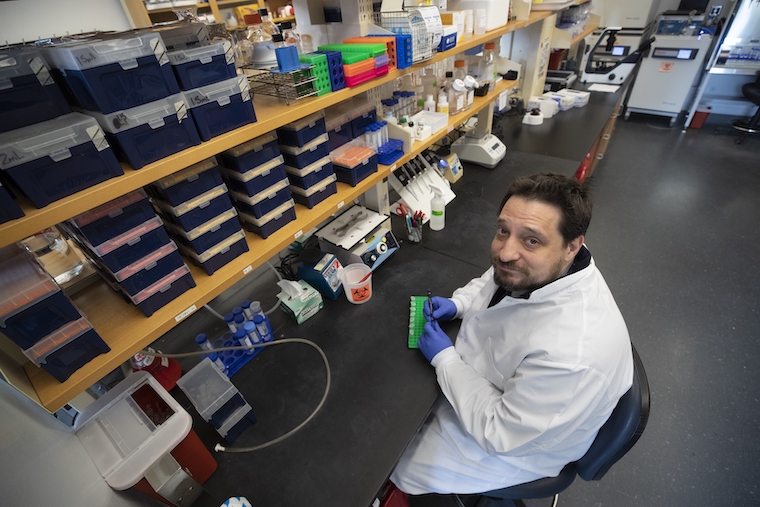New research from our Bradley D. Gelfand, PhD, suggests that the drug fluoxetine, sold as Prozac, may be effective against "dry" age-related macular degeneration, the leading cause of blindness in people over 50. If so, it would be the first treatment for a condition that affects nearly 200 million people.
Fluoxetine showed promise in both Gelfand's lab tests and animal models, so he examined two huge insurance databases to see if there appeared to be any benefits in people already taking the drug. Indeed, patients taking fluoxetine were "significantly" less likely to develop dry macular degeneration, the researchers report in a new scientific paper.
Based on these findings, Gelfand is urging clinical trials of the drug. “These findings are an exciting example of the promise of drug repurposing, using existing medicines in new and unexpected ways,” he said.
The researchers believe fluoxetine works against AMD by binding with a particular inflammasome, NLRP3-ASC. This inflammasome causes the destruction of the pigmented layer of the retina.
The researchers were pleased by the success of their combination of bench research and big-data analysis. They note that the approach could facilitate the repurposing of existing drugs for many conditions, speeding the availability of new treatments.
“Traditional approaches to drug development can be expensive and time-consuming: On average, a new FDA-approved drug takes 10-12 years and costs $2.8 billion (present-day dollars) to develop,” the researchers wrote. “Our identification of the unrecognized therapeutic activity of an existing FDA-approved drug using big data mining, coupled with demonstrating its efficacy in a disease-relevant model, could greatly accelerate and reduce the cost of drug development.”
